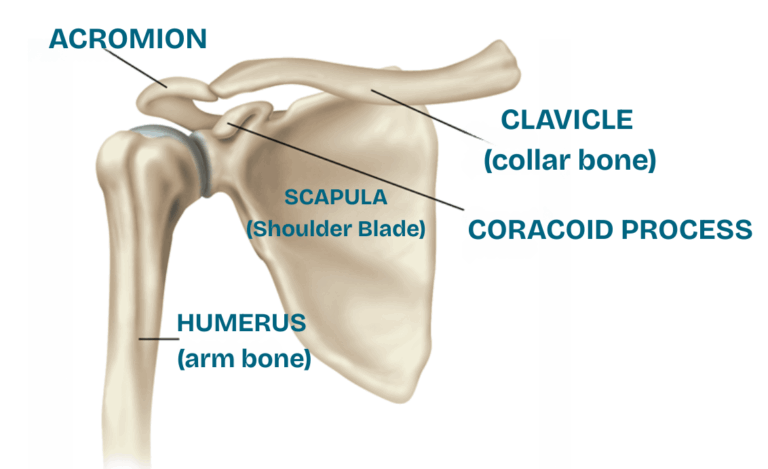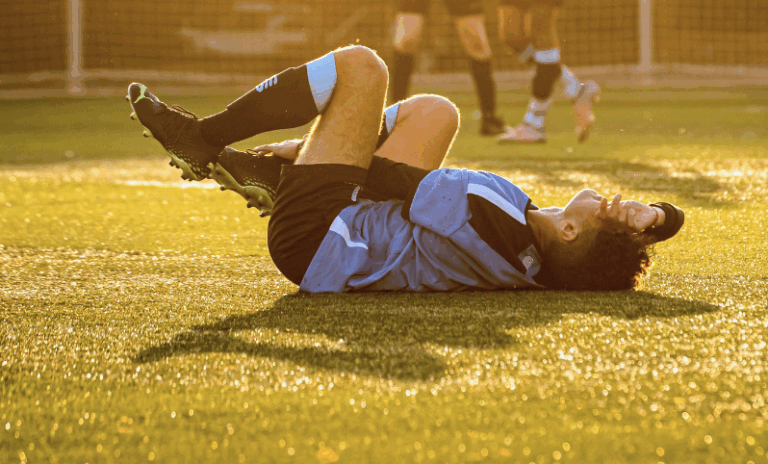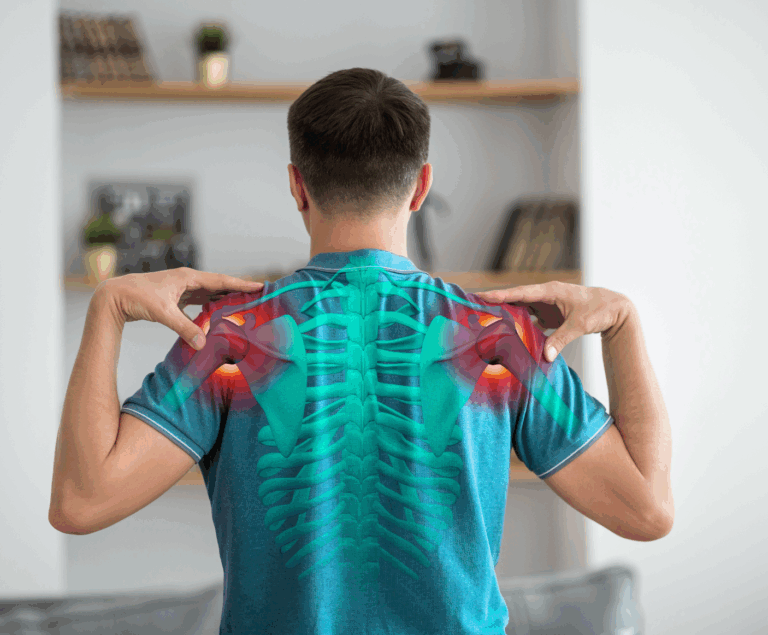Shoulder Dislocation
Shoulder dislocations are an injury we treat frequently at Somerton Physio. Shoulder dislocations most commonly occur in contact sports such as GAA and Rugby. They often occur because of a direct blow to the shoulder or from falling onto and outstretched hand. Shoulder dislocations can also occur without a traumatic event. These atraumatic dislocations are often a result of underlying factors such as of ligamentous laxity, joint hypermobility or overuse.
Anatomy of the Shoulder:
The shoulder is a ball and socket joint consisting of the head of the Humerus (Arm bone) as the “ball” and the glenoid fossa of the scapula (Shoulder blade) as the “socket”.
The shoulder is one of the most mobile joints in the body allowing for lots of movement, however this can come with a price, making it prone to dislocation.

There are several types of shoulder dislocation:
Anterior dislocation – This is the most common, where the head of the humerus comes forward out of the glenoid. This often occurs when the arm is forced backwards or rotated outwards, for example when falling onto the arm or making a tackle in rugby.
Posterior dislocation – This occurs when the humerus is dislocated backwards out of the socket and is less common.
Inferior dislocation – In these cases the humerus is dislocated beneath the glenoid. These are rare and typically accompanied by a traumatic event such as a fall from height or a high force impact to the shoulder/arm.
Signs and Symptoms:
- Severe pain in the shoulder
- Deformity
- Loss of Range of motion/ mobility
- Bruising and swelling in the area.
- Numbness or pins and needles in the hand and arm

Treatment for Shoulder Dislocation:
If a shoulder dislocation is suspected, it will need to be reduced by a medical doctor. Once the dislocation has been reduced, there is usually a period of immobilisation which involves wearing a sling for several weeks. In some cases, surgery may be required depending on the extent of the injury sustained.
Rehabilitation:
Physiotherapy rehab plays a crucial role in recovery from a shoulder dislocation. After the immobilisation period a specialised rehabilitation plan is put in place focusing on strengthening the muscles stabilising the shoulder and regaining the range of motion.
Rehab involves progressive stretching and strengthening exercises for the surrounding muscles particularly the rotator cuff. The patient will then progress to more functional exercises to improve shoulder stability. High level shoulder rehab will be required if the patient wishes to make a return to contact sport.
The rehabilitation process is essential in preventing a recurrence of the shoulder dislocation.

If you have dislocated your shoulder, you can book in to see one of our physios who will assess your shoulder and design a rehabilitation plan tailored to your needs.
You can book an appointment at our Blanchardstown Physiotherapy Clinic, our Castleknock Physiotherapy Clinic or our Old Bawn Physiotherapy clinic through our website www.somertonphysio.ie, email us at i[email protected] or call us on 01 9069566.
Please do not hesitate to contact us if you have any questions.
You can follow us on our Facebook page and Instagram for more updates.
